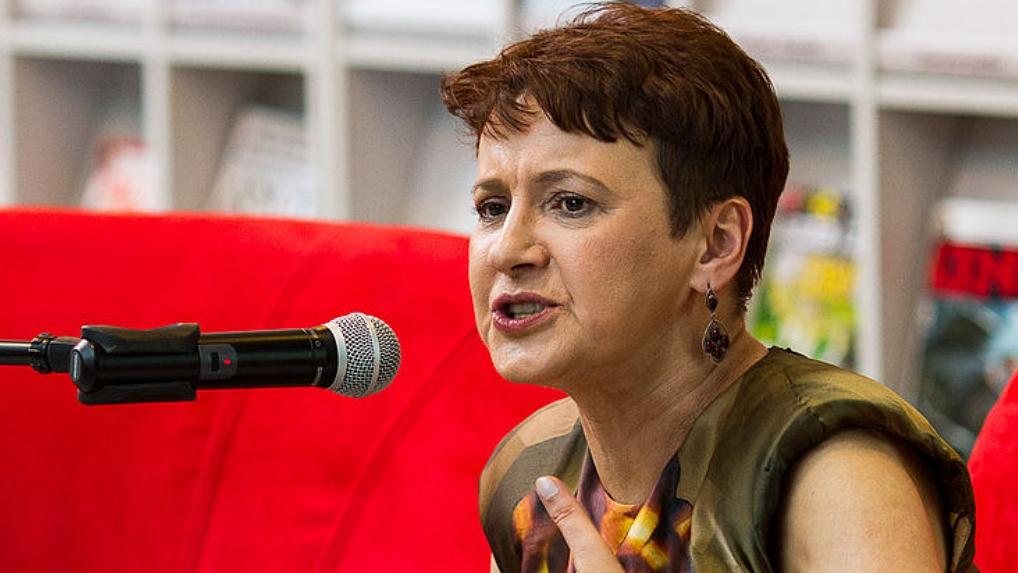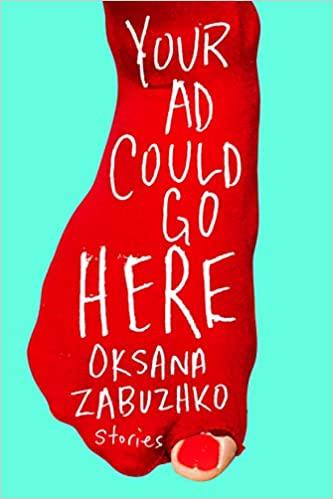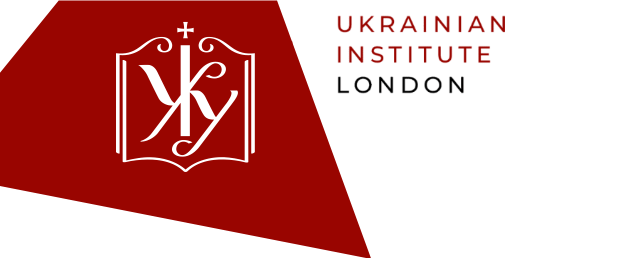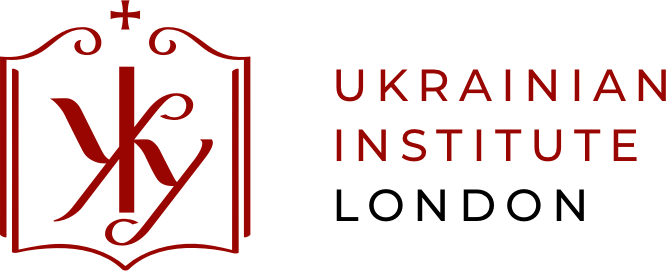Oksana Zabuzhko interviewed by Rosie Goldsmith, Director of the European Literature Network at an online event hosted by the Ukrainian Institute London. This interview appeared on European Literature Network website.

INTERVIEW
Oksana Zabuzhko interviewed by Rosie Goldsmith, Director of the European Literature Network at an online event hosted by the Ukrainian Institute London on the occasion of the English-language publication of her story collection Your Ad Could Go Here, published by Amazon Crossing (2020), translated from the Ukrainian by Halyna Hryn, Askold Melnyczuk, Nina Murray, Marko Carynnyk and Marta Horban.
Introduction by Rosie Goldsmith
I call Oksana Zabuzhko ‘a truthteller’. People listen to her. They may not always like what they hear but they always listen to her. She is among Ukraine’s leading writers, critics, feminists, thinkers, novelists, poets, commentators and essayists. She is pretty much ‘leading everything’. I’m actually going to use the term ‘public intellectual’, which we don’t use very often, in fact, dare not use very often in the UK for fear of being ridiculed.
Oksana has been widely published and translated. She rose to international fame with her first novel Fieldwork in Ukrainian Sex, which is more or less a set text in Ukrainian literature, published in 1996, and was on the bestseller list for ten years; and then came the epic The Museum of Abandoned Secrets in 2009. When I say ‘epic’, I mean epic: it is long and page-turningly brilliant. Thanks to Amazon Crossing, today Oksana is publishing the English translations of her dazzling collection of stories. It’s called Your Ad Could Go Here. One critic very grandly, very accurately, described her themes as ‘national identity’ and ‘gender issues’. She charts women’s lives and the history of Ukraine, the very checkered history of Ukraine. But there’s so much more to her writing: it’s rich, deep, dark; it’s playful, lyrical and sometimes ‘mundane’, because the truth she is telling is about our daily lives.
Rosie Goldsmith (RG): Oksana, welcome to our discussion. It is truly a joy to have you here with me in my home in Wiltshire. You’re in Kyiv, I’ve never been to Ukraine, I’ve never met you but I feel I know you, through your work and the delightful preparation over many weeks for this ‘lockdown interview’. Oksana, one thing that strikes me every single time about your books is their spectacular titles!
Oksana Zabuzhko (OZ): Thank you so much, Rosie, for this brilliant introduction! I didn’t want to interrupt you, because you made me feel it was my birthday! It’s lovely to be complimented by one of my favourite BBC anchorwomen for years and, yes, I agree, I feel we know each other, although we’ve never met. But coming back to the titles: generically I still consider myself a poet. So, of course I pay attention to how the words collide within the sentence and how they sound in the titles. These catchy titles for me should be resonating. And the title should act as a kind of watermark appearing in the text during the process of writing. For me a book is never ready and I don’t dare talk about it until it introduces itself to me through the title, which may come to me in the first chapter or in the middle, in the end or afterwards. That moment is like having ‘the thing’ finally named.
RG: Looking across the many decades of your writing, it’s easy to see how you’ve charted Ukraine’s recent history and been a very active participant in it. You’ve also charted women’s lives. These stories in your new book are basically about women, they are the strongest characters – in fact I feel a bit sorry for the men – not a lot, but I do! (Both laugh.) Oksana, are you also charting your family’s life, your family’s history?
OZ: Well, I don’t know. I’ve always had a very strong identity as a ‘women’s writer’ because I think, even if I was born a man – and I do insist that it is a privilege to be born a woman – but even if I were born a man, as a writer I would have been more interested in women. Please don’t misunderstand me. As a writer, I would have been more interested in exploring women just because, even after two centuries’ of wonderful women’s writing in the European tradition, they are still under-explored and under-articulated in literature and in culture. Where do we start? With Madame De Stahl? The Brontës? I don’t know, but we still don’t know women as well as we know men. Men have told us everything about themselves, starting with their first infantile experiences discovering their penises and ending with all their fears and complexes – conscious, subconscious and all the rest – while women remain under-told, under-explored. For me that has always been a challenge, a writing challenge. I appreciate this juxtaposition of ‘national’ and ‘gender’ – as you mentioned – because it is precisely in both national history and women’s identity that I perceive the abundance of ‘dark clothes’ and amassed experience which has been silenced for generations, which is so fascinating and charming and which I feel so privileged to be able to articulate.
RG: You treat feminism and women’s stories in the most wonderful way and I think it’s also because you began your career as a philosopher and a poet. There is so much thought and kindness in the way you look at women – and fun, too. You are a very funny writer and these stories show your wicked gift for satire. Oksana, when we look back over the 25 years since you wrote Fieldwork, do you think much has changed in your writing, your mission and your message – as regards feminism and women’s rights?
OZ: That’s a very provocative question for me to think about because I don’t reflect on writing in this way. After all, that’s the job of critics, right? I’d rather say that it’s the world and society around me that has changed within this quarter century. And, luckily enough, certain things I had to articulate that were pioneering in the ‘90s, are now commonplace for the next generation, who are dubbed ‘Zabuzhko’s daughters’ in Ukraine by the critics. It’s great to see that I’ve done some little thing to make this world a better place, but on the other side I don’t know, to what extent the world has affected my own writing.
RG: Does the fact that you are such a well-known public figure make you feel a greater responsibility to say things that people need to hear? People listen to you, they write down what you say, they quote you regularly, you are on television commenting about what’s happening in Ukraine. So, you are an important figure for your country. Does that put more pressure on you?
OZ: Well, it does. That is part of a writer’s life and that does have an effect on your writing because you feel you are being watched all the time. And it does inflict some kind of inner censorship on your writing, but here we come to the issue of professional schizophrenia: whether you write for the audience, or whether you write to tell The Truth is something any writer struggles with – to stay true but not to get lured by this big temptation of being liked, being popular and ending up telling people what they want to hear rather than what needs to be told. That’s been the major philosophical problem for centuries of writing up to this crazy information era. This dilemma takes on a grotesque shape in the story in my collection called ‘I, Milena’, which reflects on a personal experience I had 20 years ago, when I was becoming this widely ‘medialized’ public figure and I had to develop a modus vivendi with the media. All of a sudden I discovered that for the media what you write and how you want to be heard is a non-issue, because for them you are just material to create their own Oksana Zabuzhko.
RG: The interesting thing about these stories is that they’re collected from various decades of your writing. It’s also striking how your ideas speak to all of us. That’s a great gift to write something specifically Ukrainian but nevertheless internationally and individually appealing. My favourite story in the book is the one you mentioned ‘I, Milena’. It’s about a television journalist – another reason I like it! – and our voracious need for media, how media can eat us up, how this woman Milena is so absorbed with becoming a famous TV personality that she becomes absorbed into her television set. It reminded me very much of Angela Carter, as does a lot of your writing. Even if it is only a hint your stories are always connected with politics, history or something going on in the world – particularly in Ukraine. Is this deliberate on your part to always reflect collective and contemporary history in your stories? What comes first, the fiction or the fact?
OZ: That’s such a delicious question! I can discuss this subject into infinity! But before that, I can’t just drop your Angela Carter comment, because I have to thank you for this observation, as she is one of my favourite writers, and interestingly – you may not know this – but I once happened upon a doctoral article in comparative studies book entitled ‘Oksana Zabuzhko and Angela Carter.’
RG: I didn’t know – that’s amazing!

OZ: You didn’t know! So there you are! I call this my ‘blood group’ – these are the writers of my blood group. Angela Carter is my blood group. But coming back to the connection between the private and the political: I think it has a lot to do with my background and is not just the case for Ukraine but for Eastern Europe – our ‘Bloodlands’, as per Timothy Snyder’s wonderful definition. Here we have too much overwhelming history per square metre that still screams out to be articulated. In the case of Ukraine for three generations – since 1933 and Stalin’s war against Ukraine, the man-made famine ‘Holodomor’ that took millions of lives – Ukraine has been silenced and deprived of any voice of its own. This is my generation, the first generation of independence and we inherited the burden of silence. So I’ve been very aware that ours is a ‘Fortinbras mission’. I have a collection of essays published some 20 years ago entitled Chronicles of Fortinbras. In Hamlet Fortinbras cleared the stage of the dead bodies and carefully recorded the story. It’s quite a mission, he’s quite a character. Yes, I do believe that it’s our generation of Eastern Central European writers that have now got a chance to speak for the dead and to describe these generations of silence. If you look at the Eastern European novel today as a separate phenomenon, then what’s happening is more or less comparable to the Latin American novel of their boom generation of the ‘60s and ‘70s.
RG: The story ‘Album for Gustav’ in this new collection is a brilliant illustration of how you integrate the ideas of Ukraine’s long collective memory and history with the perception of Westerners, people like me coming to Ukraine, for example during the Orange Revolution, and seeing things ‘our way’. In this story the Ukrainians help us to see things from their point of view. So my question is, how do we see Ukraine incorrectly in the West? How should we see Ukraine?
OZ: I don’t think I am authorized to give advice.
RG: But from your stories, it is quite clear you do feel this passionately. You are trying to show us your long history, not in a dogmatic way, but pointing out that Ukraine is not a new country that has just been born.
OZ: In this sense, yes, absolutely. You don’t need to be a writer to do this – it’s kind of commonplace now for every Ukrainian going west to explain these things: “we are an old culture, a nation with a thousand-year-old history” – and so on and so forth. But it is a pain in the neck. It might seem exotic to the British that every time we introduce ourselves to you we need to educate you and serve up a concise history of Ukraine and explain where Ukraine is – although much less now thank God after nearly 30 years of independence. But there are other things, on a more profound level, where you would hope for better intercultural dialogue, especially today when we are all in the same boat in this crazy world of ours, where we are all shaking and facing challenges together. What really pisses me off, if I may use this expression in public, is how much of Ukraine’s dramatic experience of the past 30 years remains unexamined and ignored both by the Ukrainians themselves and by the rest of the world – even though I believe our experience and how we’ve dealt with the challenges could help and serve all of humanity. I hope I don’t sound too bombastic, but even if you think about the current lockdown, for all of my Western friends it’s a big shock, a challenge you haven’t faced since World War 2, and so on and so forth. While for me, it is something I and we experienced already in 1986 after the Chernobyl catastrophe. In May 1986, Kyiv was on kind of an improvised lockdown. We were not going out onto the streets for obvious reasons. We were incarcerated, so to speak, with closed windows in our houses, with images of this empty city. It was an apocalyptic vision, this sense of the world rapidly and dramatically changing and never the same again. This experience should have been shared with other cultures.
Watch the full event recording on our YouTube channel.



